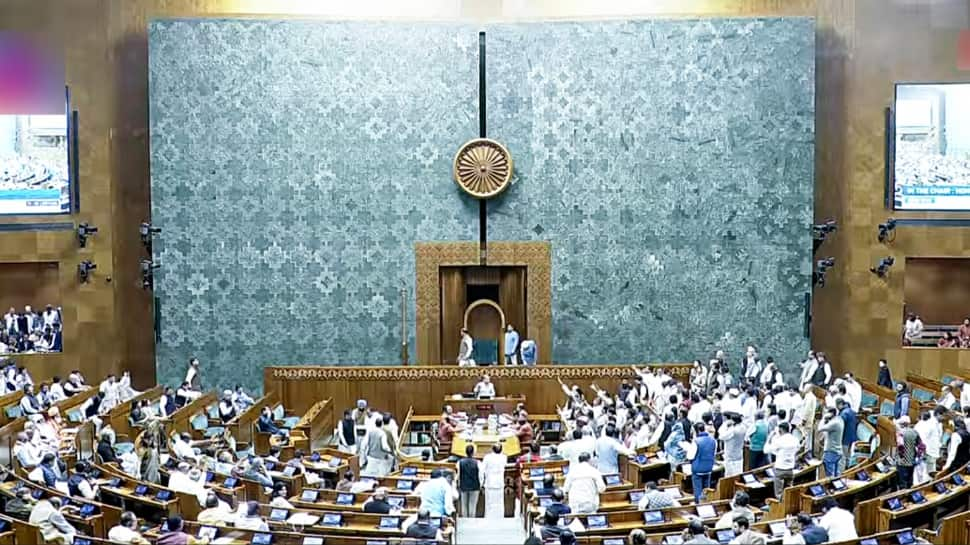 |
|
The winter session of the Indian Parliament will not see the deliberation of the Waqf (Amendment) Bill, 2024, due to the Joint Parliamentary Committee (JPC) tasked with examining it seeking an extension to complete its review. This decision follows weeks of contention and ultimately, a walkout by opposition members who voiced concerns about the JPC's process and the exclusion of key stakeholders. The chairman of the JPC, Jagdambika Pal, confirmed the intention to seek an extension until the end of the Budget Session in 2025, citing the need to hear from more state boards and government entities regarding numerous disputed properties. This delay highlights the deep-seated political disagreements surrounding the bill itself, which aims to reform the Waqf system, and the broader concerns about transparency and inclusivity in the legislative process. The ensuing debate underscores the critical role played by parliamentary committees and the importance of thorough stakeholder consultations in the legislative process, particularly when dealing with potentially controversial legislation.
The opposition's actions were not merely symbolic; they stem from serious concerns about the JPC's fairness and comprehensiveness. Multiple opposition MPs, including Sanjay Singh (AAP), Asaduddin Owaisi (AIMIM), Kalyan Banerjee (Trinamool Congress), and Gaurav Gogoi (Congress), publicly criticized the committee's process, claiming that numerous state governments, particularly those with significant Waqf properties, had been excluded from the consultation process. They argued that the rush to finalize the report without hearing from these crucial stakeholders would lead to an incomplete and potentially biased outcome. Their concerns specifically highlighted the lack of input from Delhi, Jammu and Kashmir, Punjab, and Uttar Pradesh, states with significant implications in terms of Waqf property management. The accusations of bias, particularly the suggestion of influence from senior Union ministers, further escalated the tensions, leading to a formal walkout from the JPC meeting and fueling wider concerns about the fairness of the legislative process.
The JPC's chairman, Jagdambika Pal, defended the committee's work, highlighting the numerous meetings held and the extensive number of delegations heard. However, he ultimately acknowledged the validity of the opposition's concerns, stating that he would move a resolution for an extension. The decision to seek an extension, supported by both ruling party and some opposition members, implicitly acknowledges the validity of the concerns raised. While the chairman maintains that ample opportunity for engagement was provided, the opposition's continued insistence and eventual walkout demonstrate a significant lack of trust in the committee's process. The extension itself highlights a potential breakdown in inter-party cooperation and consensus-building, essential aspects of a functional parliamentary democracy. The ultimate success of the proposed changes in the Waqf (Amendment) Bill will depend heavily on the committee's ability to adequately address the concerns raised, ensuring a truly representative and comprehensive review.
The Waqf (Amendment) Bill, 2024, itself is a highly significant piece of legislation aimed at modernizing the management of Waqf properties in India. The bill proposes significant reforms to bring greater transparency and accountability to the system, including measures for digitization, stricter audits, and mechanisms to reclaim illegally occupied properties. The bill’s implications are far-reaching, affecting the management of vast amounts of property, religious institutions, and a significant portion of the Muslim community in India. Its successful passage, however, requires not only legislative approval but also broad-based support and a sense of fairness in the process. The current dispute over the JPC's procedures underscores the challenges in achieving this balance. The extension, while providing more time for consultation, also highlights the inherent political complexities surrounding the bill and its broader implications for religious harmony and governance in India.
The events surrounding the Waqf (Amendment) Bill highlight the complexities of balancing the need for legislative reform with the demands of inclusive and transparent governance. The JPC's initial timeline, the opposition's walkout, and the subsequent decision to seek an extension all paint a picture of a deeply contested legislative process. The outcome will significantly impact not only the future management of Waqf properties but also the perception of fairness and inclusivity within the Indian parliamentary system. The ongoing discussions underscore the importance of robust and impartial parliamentary processes that give all relevant stakeholders a fair opportunity to voice their concerns and contribute to the legislative process. Failure to do so can undermine the legitimacy of the resulting legislation and further erode public trust in democratic institutions.
